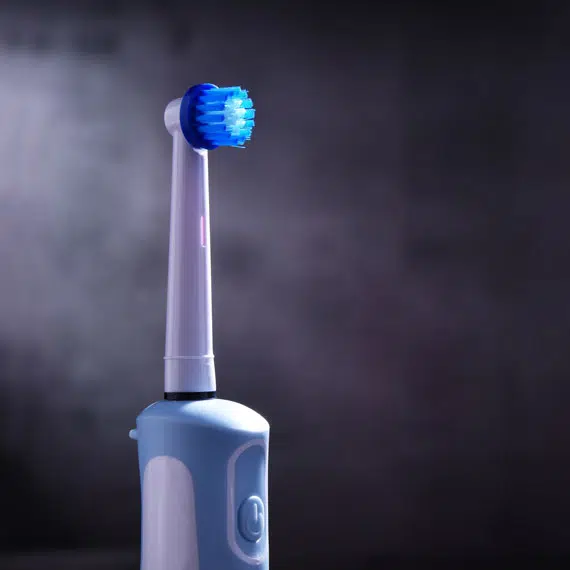Can You Use Electric Toothbrush with Implants?
If you’ve recently had dental implants, you might wonder—can you use electric toothbrush with implants or can you use electric toothbrush on permanent crowns? The short answer is yes, but with timing and technique in mind. Once your gums have healed, using a dental implant toothbrush or dental implant brush is safe and even recommended. Many patients ask, can I brush my teeth after implant surgery? You can, but your dentist may suggest starting with a soft manual brush first. This guide covers brushing teeth after implant surgery, the best toothbrush for implants, and tips to keep your implants clean and healthy
Patient concerns about new dental implants
Some patients who have implants may be concerned about the screws loosening with time. Another concern patients have is that the vibrations produced by sonic toothbrushes may trigger bone loss and implant failure. This is not true as titanium screws that hold dental implants in place serve as replacement roots for prosthetic teeth. They encourage the new bone formation and help reduce the risk of bone loss since they are inserted in the jawbone.
Chewing stimulates the jawbone, which keeps it dense, and the titanium implant roots keep the jawbone stimulated. Sonic toothbrush vibrations are comparable to those created by chewing. They are unlikely to harm your implants. On the contrary, they may be helpful. These automatic toothbrushes effectively clean your dental implant because they can reach all of the corners surrounding the implants. Brushing with a sonic model, on the other hand, is not a replacement for flossing.
The importance of proper brushing and flossing

Implants, like natural teeth, need to be cleaned and flossed daily. Although some initial sessions may be required for assessment, the patient may soon be ready to return to routine six-month examinations.
Benefits of electric toothbrush use : For optimal oral hygiene, a manual toothbrush is enough. But they are, using an electric toothbrush after dental implant placement may be an appropriate alternative. These automatic toothbrushes effectively stimulate soft tissues and distribute fluids and toothpaste into the corners of the implants. Electric brushes can reproduce between 2,500 and 7,000 brush strokes per minute. Sonic toothbrushes may amp up the power by oscillating at about 30,000 strokes per minute.
Proper technique for safe and healthy home cleaning : Brushing, flossing, and mouthwash are probably the first things that come to mind when you think about dental hygiene. In theory, hygiene does not change much with implants, although several specifics are adjusted. The modifications you may need to explore for your new dental hygiene routine are listed below.
Brushing : Dentists brushing your teeth twice a day for two minutes using fluoride toothpaste. Consult your dentist about using a dental implant toothbrush or an interdental brush. This brush may get between your artificial teeth and into the corners surrounding your implants. Using a dental implant toothbrush with the proper form and size may help a lot with plaque control.
During the first few weeks after getting dental implants, your dentist may advise you to use a manual toothbrush. This technique might assist in keeping delicate tissues from being irritated throughout the recovery process. Once the wound has healed, an electric toothbrush is a good alternative for daily cleaning. If you use a manual toothbrush, you may need to acquire one with the appropriate kind of bristles. When brushing, patients need to use only modest pressure with light, sweeping motions. Brushing too hard may cause gum inflammation, enamel erosion, and implant crown damage.
Flossing : Flossing may be challenging due to the arrangement of your implants and bridges. Your dentist might prescribe floss designed particularly for implants. This is important to prevent the floss from shredding and leaving dirt in your mouth. If flossing your implant is tough, an oral irrigator may be an excellent remedy.
Regular dental checkup : Getting frequent dental cleanings can help keep your implants clean and your dental health in good shape. What you usually do to care for your natural teeth may also be applied to your dental implants. When you see your dentist for routine cleanings, they will use specific instruments to polish your implants without hurting them.
Nightguards : If you have experienced problems with jaw clenching, you may be accustomed to sleeping with a nightguard. A night guard may be recommended for dental implant patients to avoid bone loss.
Risks of poor oral hygiene after implants : Because the mouth is full of bacteria, you need to brush and floss regularly. Combating bacteria accumulation is particularly necessary if you have implants. Leaving bacteria accumulation unchecked may lead to inflammation around the titanium screws. This condition is known as peri-implantitis. Peri-implantitis causes gum inflammation and possible bone loss. The implants may become loose if the infection spreads far enough and severe bone loss.
Maintaining appropriate care of dental implants can significantly lower the chance of damage or infection. Your dentist may discuss all of the benefits and drawbacks of implants with you. They may also educate you on avoiding peri-implantitis so you may keep your implants for a long time.
Call today to schedule a consultation! (425) 998-8109
Call today to schedule a consultation!
(425) 998-8109
Conclusion
Dental implants are a reliable tooth replacement option. While follow-up management may change from everyday practices during recovery, routine brushing may typically be resumed shortly afterward. It is usually advisable to seek the advice of a dentist for precise recommendations. An electric toothbrush after dental implant placement is ideal for routine cleaning. This is because of its capacity to clean dental implants effectively.

